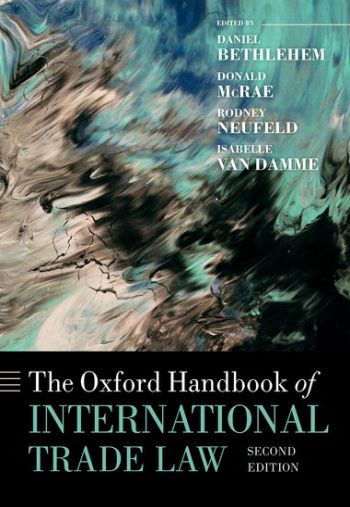
The rules and regulations governing international trade have grown at an exponential rate in the years since the Uruguay Round agreements established the WTO in 1995. These agreements continue to act as the multilateral foundation of the body of law, which is being expanded by its own committees and in new arrangements. As the international trade law system grows, it comes under increasing scrutiny from scholars, government officials, and trade law practitioners, it raises questions about the overlap with other international legal, political, and economic regimes.
This Handbook considers the system of international trade law and what it means for States, for economic systems, for other international regimes, for civil society, and for human welfare. The book opens by focusing on the regulation of international trade, considering the history, economics, and sources of international trade law, as well as the possibilities for the future. It considers the intersection of international trade law with States, the economic and institutional context of the world trading system, the framework of its substantive law, and the balance of trade objectives versus ethical responsibilities. The book concludes by offering analysis of new trade law developments in the agricultural, digital, and financial sectors, as well as outlining the settlement of trade law disputes both in the WTO and bilateral/regional trade agreements.
The second edition broadens the scope of analysis beyond the WTO, analysing regional trade agreements and preferential trade arrangements, including the Trans-Pacific Partnership, and Canada-EU Trade Agreement. The new edition also considers developments within the WTO such as in the area of agricultural export subsidies, and the Trade Facilitation Agreement.